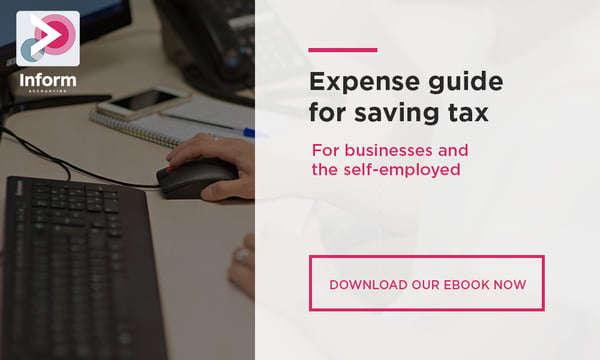BLOG
Landlords buying a second home - know your taxes

All homeowners are subject to Stamp Duty Land Tax (SDLT), as well as potential Capital Gains Tax and Inheritance Tax charges. But as a landlord operating a property rental business, you will also be subject to either Income Tax or Corporation Tax, and possibly VAT.
The amount of tax you have to pay, the timing of returns, and when you have to pay the tax, are all dependent on whether you operate as an individual or company, and whether you’re renting residential or commercial property.
So, we’ve identified the taxes, now let’s take a deeper look at how they work and what this means for you. In this blog, we focus primarily on residential properties.
Stamp Duty Land Tax (SDLT)
There are various reliefs and exemptions available in particular circumstances, but generally, any transaction involving the sale of land will be subject to SDLT.
SDLT is charged on the VAT inclusive amount of any consideration paid for a property, and is payable by the purchaser. A land transaction form must be submitted by the purchaser within 14 days of the transaction taking place, and the duty paid at the same time. Interest will be charged on any late payment, and there are also fixed penalties for late submission.
How much tax is charged therefore depends on the value of the property, and this is levied into bands carrying different rates. There are separate bands for residential and non-residential properties (see rates below). However, an additional 3% charge is added to each band rate on the purchase of a second property (buy-to-let), except where the property cost less than £40,000, or is held under a long lease.
The nil rate band has temporarily been increased from £125,000 to £500,000 until the end of June 2021, resulting in a maximum £15,000 tax saving per residential property. The nil rate band will then be tapered down to £250,000 until 30 September 2021.
|
Rate |
Band |
|
0% |
£0 - £500,000 |
|
5% |
£500,001 - £925,000 |
|
10% |
£925,001 - £1,500,000 |
|
12% |
£1,500,000 + |
Capital Gains Tax (CGT)
If you operate your property rental business through a company, there will be no CGT. Instead, any profits made on the sale of a property held by the company will be charged to corporation tax, currently at 19%.
If you're an individual on the other hand, CGT is charged on the net gains made on sale of properties. A gain or loss is calculated for each property, with total net gains (after adding gains and losses together) in excess of the annual exempt amount (£12,300 20/21 and 21/22) taxed at the highest rate of tax for capital gains. The rate of CGT applied depends on whether the property sold is residential or non-residential, and whether the individual is a basic, higher, or additional rate taxpayer.
|
Property |
Basic Rate Taxpayer |
Higher or Additional Rate Taxpayer |
|
Non-residential |
10% |
20% |
|
Residential |
18% |
28% |
Inheritance Tax (IHT)
IHT is charged on the transfer value of chargeable lifetime transfers (e.g. most gifts of property to trusts), and on the net value (after exemptions) of an individual’s death estate. Each individual has a nil rate band on death of £325,000, with any excess death estate value taxed at 40% (20/21). It should be noted that this nil rate band is reduced by the value of chargeable lifetime transfers and potentially exempt transfers that become chargeable within 7 years of the individual's death.
IHT is payable by the personal representatives, and must be paid within 6 months from the date of the individual’s death. Of course, they may not have the cash to pay the taxes due, particularly if the estate inherited is asset rich, and cash poor. In these cases, properties and other assets may need to be sold to raise funds, and HMRC permits for the IHT to be paid over 10 equal installments. However, if a property is sold within this 10 year period, then the IHT is payable immediately.
Income Tax or Corporation Tax
Profits on property rentals are calculated as rental income less allowable expenses. These taxable profits can be further reduced by any brought forward losses, and will then be taxed under Income Tax (individuals) or Corporation Tax (companies).
Income Tax
If the letting is deemed to be a business (i.e. rather than held as an investment), then payment of tax is made in three instalments at the individual’s marginal income tax rate.
These payments are known as ‘Payments on account’ or POA. The first two POAs are paid in advance, in contribution towards the year end tax bill. Each payment is equal to 50% of the tax bill for the prior financial year, and are payable on 31 January (in the year of assessment), and the following 31 July. Where the tax bill for the financial year differs from the amounts paid on account, this will generate either a balancing payment, or a tax refund.
POAs must be paid unless:
- The total tax bill for the prior year was less than £1,000.
- At least 80% of the tax bill has already been paid e.g. through PAYE.
Corporation Tax
Corporation tax is charged at 19% on profits, and becomes payable 9 months and 1 day after the company’s financial year end.
VAT
VAT is only relevant to the construction of a new residential property. Whether the supply is classified as exempt or zero-rated will depend on the use of the property after construction.
Get in touch
Do you own a property rental business, and are trying to get to grips with your taxes? Get in touch with us today to find out how we can help keep you compliant, and benefit from our expert advice. Give our Business Development Manager a call on (0121) 295 8884, or email charlie.sangha@informaccounting.co.uk.




.jpg?width=1500&height=1000&name=amy-hirschi-K0c8ko3e6AA-unsplash-(5).jpg)

